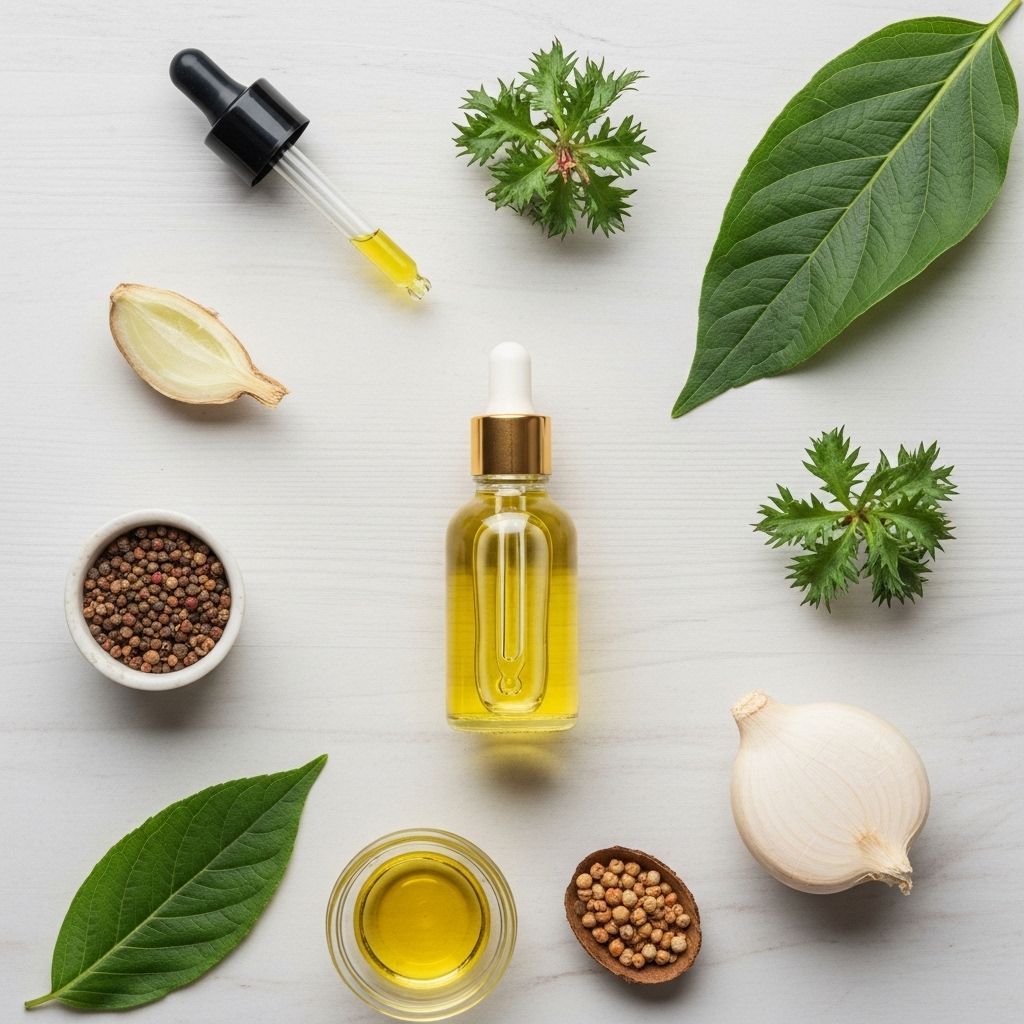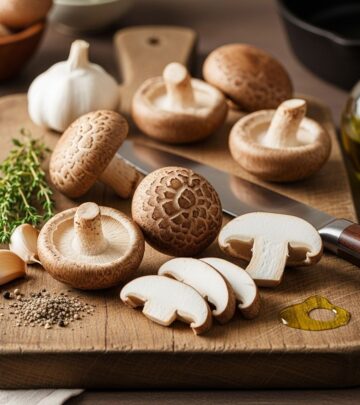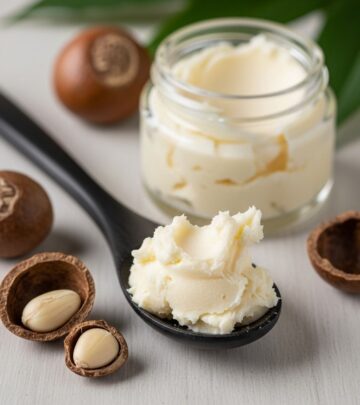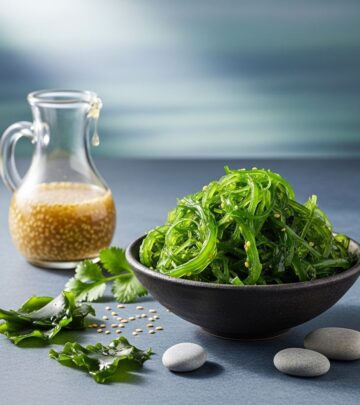Castor Oil: Benefits, Uses, and How It Transforms Health, Hair, and Skin
A versatile remedy that soothes skin, supports digestion, and restores hair health.

Castor oil has captivated ancient and modern civilizations alike, earning a prominent place in home remedy cabinets around the world. Pressed from the seeds of the Ricinus communis plant, castor oil is famous not only for its versatility but also for its unique fatty acid profile, primarily rich in ricinoleic acid. Whether it’s easing constipation, nourishing hair, treating skin conditions, or providing gentle pain relief, castor oil appeals to those seeking natural and accessible solutions to everyday health and beauty concerns.
This article will delve into castor oil’s most celebrated benefits, backed by tradition and emerging evidence, and provide practical insights on its uses, recipes, and frequently asked questions.
What Is Castor Oil?
Castor oil is a thick, pale yellow plant oil extracted from the seeds of the castor bean plant (Ricinus communis). It contains a high concentration of ricinoleic acid, a monounsaturated fatty acid, along with other nutrients like vitamin E and omega-6 and omega-9 fatty acids. Castor oil is available as:
- Cold-pressed, hexane-free oil for topical and internal use (always ensure it is labelled food grade if ingesting)
- Ingredient in hair, skin, and cosmetic products
- A component in industrial applications (lubricants, biodiesel, etc.)
This oil is revered in Ayurveda, Traditional Chinese Medicine, and folk remedies throughout the world for its unique healing properties.
Nutritional Profile of Castor Oil
| Nutrient (per tbsp, 15ml) | Amount |
|---|---|
| Calories | ~126 kcal |
| Total Fat | ~14g |
| Protein | 0g |
| Carbohydrates | 0g |
| Fiber | 0g |
| Main fatty acids | 90% Ricinoleic acid, plus linoleic, oleic, stearic, linolenic acids |
Amazing Benefits of Castor Oil
Castor oil offers an array of potential health and beauty benefits. Its uses range from internal remedies to external treatments, making it a truly multipurpose oil.
1. A Natural and Effective Laxative
Castor oil is best known as a natural stimulant laxative. It helps to relieve occasional constipation by stimulating muscle contractions in the intestines, leading to bowel movement typically within 6–12 hours.
It is FDA-approved for this specific purpose and is sometimes used for bowel cleansing prior to medical procedures. However, it is not suitable for long-term or frequent use and is not recommended for pregnant women or individuals with bowel diseases. Always use food-grade castor oil for oral intake and follow dosage instructions carefully.
- Quick onset: Works within 6–12 hours.
- Occasional use only: Overuse can lead to dehydration or electrolyte imbalance.
- Alternative application: Castor oil packs applied to the abdomen may support digestion or comfort without internal use.
2. Skin Care Superstar
Castor oil is widely lauded for moisturizing and soothing the skin. Its unique composition makes it:
- Deeply hydrating: Ricinoleic acid locks in moisture, softening dry or flaky skin.
- Soothing and calming: Anti-inflammatory properties reduce redness and irritation.
- Wound healing: Its gentle film can support healing of minor cuts, abrasions, and sunburns.
- Anti-microbial activity: May help inhibit bacteria and fungi, offering benefits for acne-prone or irritated skin.
Common skin uses include:
- As a night moisturizer for face, lips, and dry patches
- For rough elbows, knees, and heels
- To soften cuticles and cracked fingertips
- As part of DIY ointments for burns, insect bites, or itch
3. Helps Manage Acne and Blemishes
The anti-inflammatory and anti-microbial actions of ricinoleic acid may help reduce acne-causing bacteria such as Staphylococcus aureus and Propionibacterium acnes. Castor oil may calm inflamed skin and diminish redness, though individuals with oily or sensitive skin should use it sparingly to prevent potential pore-clogging.
4. Promotes Healthy, Lustrous Hair
Popular in DIY hair treatments, castor oil is known to:
- Nourish the scalp: Soothes dryness and scalp irritation with its rich fatty acid content
- Might encourage hair growth: Anecdotal evidence suggests regular scalp massage may support thicker, shinier hair
- Add shine and manageability: Coats strands, sealing in moisture and smoothing frizz
- Support eyelash and eyebrow health: Applying a tiny amount with a clean brush may condition and enhance appearance
Note: While widely popular for hair growth, scientific research on this claim is limited. Nevertheless, its ability to improve scalp health and hair shine is well-documented.
5. Natural Anti-Inflammatory Effects
Castor oil’s ricinoleic acid provides anti-inflammatory and mild analgesic (pain-relieving) effects when applied topically. This makes it a useful home remedy for:
- Arthritis or joint pain: Gently massaging the affected area can ease stiffness
- Sore muscles: Blended with other oils, it melts tension after exercise or exertion
- Minor sprains or strains
6. Supports Minor Wound Healing
Due to its moisturizing, protective, and microbial-inhibiting properties, castor oil is traditionally used for minor wounds, abrasions, and even insect bites. It forms a barrier on the skin, promoting a moist environment for healing and minimizing the risk of infection.
7. May Support the Lymphatic System
When used as a castor oil pack (a cloth soaked in oil and applied to the skin, often with gentle heat), castor oil is believed to stimulate lymphatic drainage and promote natural detoxification. While scientific proof is limited, this technique is embraced in alternative medicine for its relaxing and gentle detox effects.
How to Use Castor Oil Safely
Castor oil is versatile, but safe use requires a few important guidelines:
- For constipation: Only use food-grade, cold-pressed oil. Strictly follow dosage instructions (usually 1–2 teaspoons for adults). Never use in children without medical supervision.
- For skin and hair: Dilute with lighter oils (like jojoba or coconut) if you have sensitive skin, as castor oil is thick and potent.
- Allergy patch test: Apply a few drops to your inner arm; wait 24 hours for signs of irritation.
- External use: Suitable for most people on unbroken skin; avoid direct contact with eyes and mucous membranes.
- Pregnancy: Do not use internally without a doctor’s advice. Castor oil may induce labor in some cases.
Popular DIY Beauty Uses & Home Remedies
1. Nourishing Hair Mask
Mix 2 tablespoons castor oil with 1 tablespoon coconut oil. Massage onto scalp and through damp hair; leave for 30–60 minutes, then wash thoroughly. Repeat weekly for shine and softness.
2. Moisturizing Body Oil
Blend castor oil with sweet almond oil and a few drops of lavender essential oil. Apply after a shower to lock in moisture.
3. Soothing Skin Balm
Combine 2 teaspoons castor oil, 2 teaspoons shea butter, and 1 teaspoon beeswax (melted together and cooled). Use on dry spots, cuticles, or feet.
Potential Side Effects and Precautions
- Oral use: Overuse can cause diarrhea, dehydration, or electrolyte imbalance. Not for chronic constipation.
- Skin irritation: Rare but possible. Always do a patch test.
- Pore clogging: People with acne-prone skin may experience breakouts.
- Pregnancy and children: Internal use is NOT recommended without medical guidance.
If you’re taking regular medications or have health conditions (intestinal, liver, or kidney diseases), consult a healthcare provider before using castor oil, especially as a laxative.
Comparison Table: Castor Oil vs. Other Popular Oils
| Feature | Castor Oil | Coconut Oil | Olive Oil |
|---|---|---|---|
| Main Fatty Acid | Ricinoleic acid (~90%) | Lauric acid | Oleic acid |
| Consistency | Thick, viscous | Solid at room temp (melts easily) | Liquid, medium viscosity |
| Best Uses | Laxative, deep moisturizing, scalp/hair, relief for skin conditions | Light moisturizer, hair serum, cooking | Moisturizer, cooking, massage |
| Comedogenic Rating | Moderate | Low to moderate | Low |
Frequently Asked Questions (FAQs)
Q: Can castor oil really stimulate hair growth?
A: While there is plenty of anecdotal support, research directly proving castor oil stimulates faster hair growth is limited. The oil improves scalp health, reduces dryness, and gives hair a shinier, fuller look, which may create the appearance of faster hair growth.
Q: Is castor oil safe to use on my face?
A: Yes, but apply a small amount first and dilute with a carrier oil if you’re new to it. Those with acne-prone skin should use with caution as it may clog pores for some.
Q: How much castor oil should I take for constipation?
A: Typical doses for adults are 1–2 teaspoons of food-grade castor oil, taken on an empty stomach. Always follow label directions and never exceed recommended amounts.
Q: Are there any side effects of using castor oil?
A: Possible side effects include diarrhea (if taken internally), abdominal cramps, skin reactions, and dehydration. Pregnant women and children should avoid using it as a laxative unless directed by a doctor.
Q: What’s the best way to apply castor oil to eyelashes or eyebrows?
A: Use a clean mascara wand or cotton swab, dip it into a tiny amount of castor oil, and gently coat lashes/brows at night. Wash off any excess in the morning.
Key Takeaways
- Castor oil is a true multitasker: a natural laxative, moisturizing agent, skin soother, and potential aid for joint comfort and hair vitality.
- Choose cold-pressed, hexane-free oil for topical or internal use, and always follow dosage guidelines.
- Patch test before broader application, especially on sensitive or acne-prone skin.
- As with any natural remedy, consult your healthcare provider for personalized advice—especially if pregnant, nursing, taking medications, or managing a chronic condition.
References
- https://www.oneagorahealth.com/30-outstanding-castor-oil-uses-and-benefits.html
- https://www.bbcgoodfood.com/health/6-benefits-of-castor-oil-and-how-to-use-it
- https://www.medicalnewstoday.com/articles/319844
- https://www.healthline.com/nutrition/castor-oil
- https://www.webmd.com/diet/castor-oil-health-benefits
- https://health.clevelandclinic.org/castor-oil-benefits
- https://www.ncbi.nlm.nih.gov/books/NBK551626/
- https://www.mdanderson.org/cancerwise/what-to-know-about-castor-oil-health-claims.h00-159622590.html
- https://bcbsm.mibluedaily.com/stories/health-and-wellness/are-there-any-benefits-of-castor-oil
Read full bio of Sneha Tete












